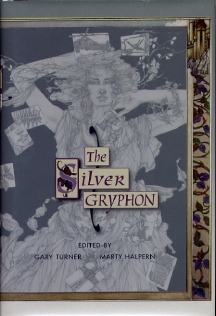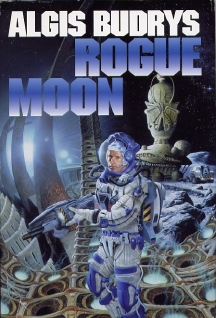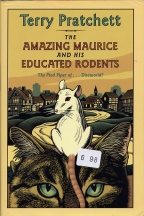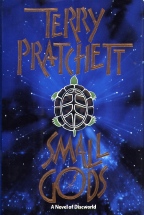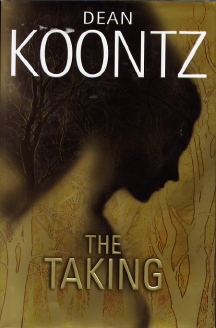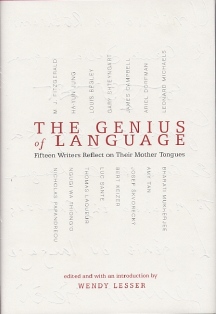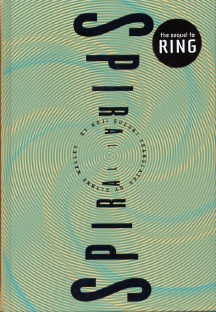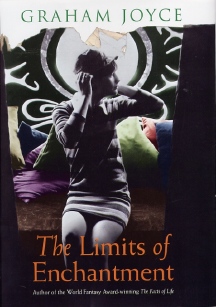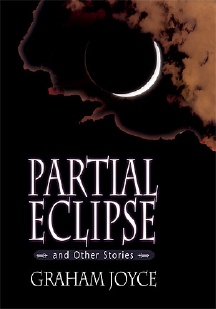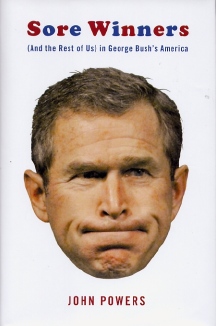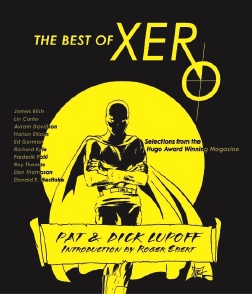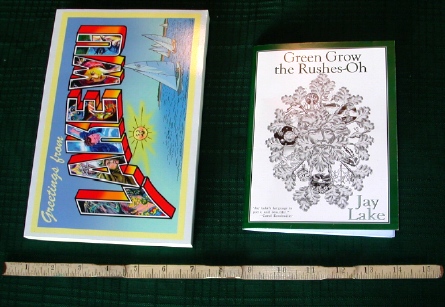|
|
|
This Just in..News from the Agony Column
|
07-16-04: A Golden Opportunity, A Silver Anniversary; My Mini-Life in the Bush of Books Part 1 |
|||||||||||||||||
'The
Silver Gryphon' from Golden Gryphon
Nor will you be disappointed in 'The Silver Gryhon', Golden Gryphon's 25th title. You get Kelly and nineteen other stars, including Joe R. Lansdale, Kage Baker, Jeffrey Ford, Michael Bishop, Howard Waldrop, the list goes on, the beat goes on, but the stories are bravely short, with the exception of the ever voluble Paul Di Filippo, who brings in a novella titled 'What's Up Tiger Lily?' Each chapter in his novella has the title of a movie --'Duck Soup', 'The Breakfast Club', 'The Big Chill' and it's the kind of work that just sort of says "Read Me". If it says "Feed me", my experience of the movies suggests that's a bad idea. Golden Gryphon calls it's books 'Archival Quality Hardcovers', and this, as usual lives up to that attribution. You get a gorgeous Thomas Canty cover painting, and even better, silver, yes silver covers. What's between the covers is what makes it all worthwhile. If you need more evidence beyond the Di Filippo (you shouldn't), let me mention that Dick Lupoff writes an alternate history in which Gore and Bush are named Co-Presidents. American democracy falls. And that's different from what happened in what way? Then of course, the ever out-there Neal Barrett gives you a story about alien cows picking up astrophysicists at a science convention. Is it just me, or is this book entirely devoid of science fictional themes? Maybe it's just me. Because to me, it seems as if, well -- that happened. UPDATE: Marty Halpern just wrote me to let me know that Golden Gryphon has a sale on right now; "One of our ongoing sales right now is, in fact, for THE SILVER GRYPHON. The trade edition is $22 (postpaid in US), and the signed, numbered limited edition -- 23 signatures including Thomas Canty, w/ slipcase -- for $100.00." You can follow this link to their website, but I'll acept no responsibility for what the other half says when the CC Bill arrives. |
|||||||||||||||||
| A
Recent Grab At Logos Used Books A recent snatch and grab operation at the used book store yielded up some tasty finds, worthy of passing along here. Plus, there are a whole bunch of recent releases now showing up on the remainder tables definitely worthy of your examination.
[Actually, I found it shelved with the science fiction and snapped it up thinking it was used. I had them put it on hold for a week for fiscal reasons, then forgot I had it on hold and then they took my tiny stack and put it back out in the huge stacks they have waiting to be shelved where it could not be found. They looked it up in their database, even though it doesn't show used books, which was good, because it did show up sitting on the remainder table where I went and fetched it.] And on my last trip there, I found 'Small Gods', another fine HarperCollins hardcover by Pratchett, which I also put in the TBR stack, which doubles as a sub-orbital launch platform for my spy satellites. And as I said, there's the good thing about Pratchett -- never any shortage of eminently enjoyable titles ready to read in fine hardcover. Pull up chair, a beet, the afternoon sun, the back porch. Cue vacation music.
His latest novel, 'The Taking' didn't look to have any "very special" characters, nor did it look to be unbearably long. You know I did really like the first two books of Koontz's projected trilogy, 'Fear Nothing' and 'Seize the Night', which I bought in their Cemetery Dance incarnations. I'm not sure where or even if I'll fall on this novel, but it's there in case I feel the need to read a new Dean Koontz novel. Alas, such is often the fate of the bestselling writer for the avid reader. Some books hardly need to be read because they've been read by so many people one knows, in one's immediate vicinity, that one can feel as if one has read the book without ever having cracked the cover. That's certainly the case with one Very Special Book. Every time I leave the house, I expect some sniper with a gattling gun full of these hardcovers to start firing at me until the books have become physically lodged in my brain. That's probably why I carry a hardcover book with wherever I go -- to fend off any book attacks. Please, if you were planning one, un-plan it. In my times as a Cub Scoutmaster, playing "Hey Hey we're the Cub scouts" for a room full of suddenly startled adults and restless pre-teens, I learned one thing: Be Prepared. |
|
07-15-04: Two Places at Once |
|||
'The
Genius of Language' Edited by Wendy Lesser
It's my intuition that a lot of my readers are also writers; or if not writers per se, they're people who are passionately interested in writing. And while I find myself interested in writing devoid of plot, genre, character, the real world -- just the words on the page and naught else -- books on writing itself often leave me cold. But Wendy Lesser has managed to bring together a variety of writers who write not in one language, but two, and having asked them to write about it, she's brought readers one of the most compelling collections of words on paper you're likely to find this year. 'The Genius of Language' (Pantheon/Random House, $23.00) lives up to its title and beyond. Lesser, the founding editor of The Threepenny Review, was handed the idea by her editor and we can only be thankful she followed through and brought us a wonderful book about wonderful writers, writing wonderfully. I sat down to glance through the book and had to tear myself away from it an hour later to write this article. From Lesser's thoughtful, candid introduction through the essay in footnotes by Ariel Dorfman and beyond, 'The Genius of language' gets to the heart of the writing -- and thus the reading experience. Fortunately, having been handed the idea, Lesser decided to ask not linguists or experts but rather writers, who wrote in two languages, to speak of the meeting in their minds. If you're a writer, or even vaguely interested in the process of writing, this is a book that does not lecture you to sit down every day and write, it does not tell you how to tap your inner creative urge, and does not talk about craft or discipline. Instead, this book about writing short-circuits the writing process down to the very core of language. It's not about the process. It's about the language, that which fascinates all writers and all readers. Lesser displays all sorts of wisdom in both her choices and her execution of this project. This is the kind of book that can sing like an angel. It does just that. Lesser set up some guidelines for what she wanted and then bent them in the best possible way. She gives her writers room to innovate, so that we get an essay written almost entirely in footnotes and enough fences so that everyone naturally seems like a good neighbor. There's the perfect mix of dissonance and harmony between all the essays in this collection. In case you're thinking "Essays? We don't need no stinkin' essays!", think again. One of the benefits of Lesser's subject is that all the writers almost of necessity turn in work that's a perfect mix of fascinating personal autobiography and interesting, rigorous, analytical thought about language. Lesser's managed to get a collection of humorous, entertaining and thought-provoking writing about writing that writers should find indispensable. Merely poking about in the work of these fifteen writers will inspire, enthuse and engage writers and readers in the language on the page and the language in their minds. I made the mistake of opening the book, and missed my first deadline for turning in the work of the day, as I was caught up in the fantastically funny and insightful essay by Ariel Dorfman, 'Footnotes to a Double Life'. This is the work written mostly in footnotes about Dorfman's struggle to write a memoir in English --no, Spanish, no English, no -- I'm not going to tell you which. "Being bilingual does not exempt you from the horrors of the human. No one language condemns you to laziness or efficiency, mendacity or truth. If you dispose of two languages, therefore, you can lie twice as much -- but you also have a good extra whack at the truth, if you are so inclined." Amy Tan argues both sides of the question as to whether or not the Chinese language has words that are the simple equivalent of "yes" and "no". In the process of doing so, she arrives at her conclusion via her mother, Edward Sapir and the Sapir-Whorf hypothesis, which famously states that one's perception of the world is shaped by one's language. Her mother suggests "'Do not question us when we call. It is not respectful.' 'What do you mean?' 'Ai! Didn't we just tell you not to question?'" I can attest to the Universal Parental Wisdom of these words -- no matter what language they're spoken in, translated from or translated to. If you're a writer, a reader, one, both, neither, you can replace that gun under your pillow with 'The Genius of Language'. If osmotic transfer fails you, then you can be rest assured that reading will do the trick. |
|
07-14-04: Vertical Recursion |
|||
The
New US Edition of Koji Suzuki's 'Spiral'
Because due to their diligence and in part to the selfish indolence of Hollowood, readers are once again in the driver's seat when it comes to reading Koji Suzuki's innovative novels before seeing the filmed versions. That means we've got 'Spiral' queued up and ready to read, long before the appearance of either an easily-found DVD release of the Japanese version of the movie or the Hollowood re-make. As surprisingly different as I found the novel to be from either filmed version, to my mind, it's always best to read the book before one sees the movie. And have we thanked Vertical yet, for bringing us these wonderful versions of the Japanese novels? Well by now we have. Again. 'Spiral' starts off with Ando, a coroner, forced to dissect the body of his longtime rival, Ryuji Takayama. Readers will remember Ryuji as Asakawa's grating counterpart in 'Ring'. Ryjui's death is certainly unnatural, and it leads Ando to the discovery of a virus tied to a now-familiar videotape. The Ring virus has been unleashed, and nothing will ever be the same in our media-saturated world. This time around, it appears as if Suzuki is mutating the story into a rather different format than his previous novel. Numerous illustrations in the narrative give rise to this impression, as well as an extended reading of the dust jacket, once again a transparent overlay for a psychedelic pattern courtesy of Chip Kidd. (Hey Chip, where's the sequel to 'The Cheese Monkeys'?) Suzuki writes horror fiction that has a strong current of rational science fiction running through it. Those who have seen the 'Ring' films, in any state would be well advised to give the books a read, because they're quite different in atmosphere and content. Suzuki's work is closer to that of Arthur C. Clarke or Stanislaw Lem -- particularly Lem's wonderful novel 'The Chain of Chance' -- than it is to that of Stephen King, to whom he's often compared. Try, just try to find a blurb about this author that doesn't include the phrase 'Japanese Stephen King'. See, even I, who have actually read the books and know that this is not a particularly helpful or accurate description have fallen victim to having put it in my article. As one might expect, it's a recursive effect; those who quote my article may mention that I eschew the comparison to Stephen King, and yes, they will send the 'King' virus on its next generation. The only thing missing is a cover blurb from King himself, proclaiming Suzuki as "the future Stephen King of Japan." The horror! The Horror! |
|
07-13-04: Graham Joyce Preview, John Powers on The Face of American Culture |
||||||
'The
Limits of Enchantment' Are Extended
Joyce's latest is title 'The Limits of Enchantment' and is due out in January of next year. This time round, Joyce looks at the coming of age of a young woman who lives in a small village in England in the 1960's. But it's much more than that, be assured. It's Graham Joyce. Sometimes a publisher manages to get very lucky, usually the result of being very smart. Gollancz here is no exception to the long line of smart publishers who find themselves falling upon good, no great luck. That's because they've got some of the most mesmerizing DJ notes I've ever read. Even if I had heard nothing of Graham Joyce, I'd be champing at the bit to read this novel. I'm going to reproduce these here for you. Clearly, they don't pass on any spoilers other than an almost insatiable urge to read the book: It practically sends goosebumps up my arms to read that. But wait -- there's more. That's because those are not just the DJ notes. They're the first few paragraphs of the novel itself, verbatim. Anybody who can write like must be Graham Joyce. Fortunately,there are a couple of older titles that came out before I twigged to how good this writer was, including 'Dreamside', 'Dark Sister' (oft mentioned as being in development) and 'House of Lost Dreams'. There is the short story collection from Subterranean Press, 'Partial Eclipse'. Something is there between now and then. |
||||||
'Sore
Winners' and Universal Losers
Joining the positive landslide of titles that seem to be slagging against our current ruler^H^H^H^H^Hpresident is John Powers 'Sore Winners'. But 'Sore Winners' has a slightly different angle that I really like. Powers, who is the Deputy Editor over at the esteemed 'LA Weekly' (who managed to mention 'The Thackery T. Lambshead Pocket Guide to Eccentric and Discredited Diseases, to their eternal credit) and a Critic At Large (well, at least until this book comes out) for NPR's Fresh Air, isn't going about the usual litany of the liberal landslide-riders, telling us what's wrong with the current Administration. Instead, he approaches matters from another angle, asking us, well what can you expect from a culture that turns 'Survivor' into a number one television show, a culture where more pounds of paper are dedicated to praising superhero movies than are to printing up new novels by such talented writers as TC Boyle or Graham Joyce? Now that's an interesting proposition. Because seen as a symptom and not an illness, as a product of our culture rather than a creator of our culture, well, the whole steamroller seems a little bit less terrorizing. (Or perhaps it's more terrorizing because it means our entire culture is going to hell.) Add to this the fact that Powers himself is funny, which makes the book much more readable. Even better, the dust jacket doubles as a convenient dart board. Few books boast such a variety of reasons to buy! |
|
07-12-04: A Round Table Discussion on the Power of the Small Press/Nothing is Greater Than XERO; Getting 'Rushes' Online |
||||||
'The Best of Xero' by Dick and Pat Lupoff from Tachyon Publications
This Round Table Discussion will air up and down the coast of Central California on Tuesday, July 13, 2004, at 10 AM on KUSP, 88.9 FM, kicking off a series on Independent Media. You can also tune in to the KUSP web site and listen live on the web with your Real Player. Be sure to tune in and enjoy this spirited and rather humorous discussion. As I was setting up the talk, Dick Lupoff told me that he'd been a publisher back in the 1960's, when he'd edited a fanzine called 'Xero'. I frankly knew nothing about it, but it was a pleasure to hear he and his wife tell tales of mimeographing, stapling and sending out fanzines that cost a whole quarter, and getting envelopes with coins taped to pieces of paper. As it happens with many who go into the publishing business, Lupoff eventually found he had to make a choice between publishing and writing. He chose the latter, to the delight of readers up to this very day -- and beyond. I asked him to tell me what we could look forward to and he said that his next new book will be: In its day, Xero was a Hugo-Award winning fanzine that boasted writers like Harlan Ellison, Avram Davidson, Lin Carter and James Blish. Forthcoming from Tachyon Publications is 'The Best of Xero', which collects their writing and much, much more, including lots of wonderful illustrations and even some of the locs (letters of comment) that are seen as precursors to Web-style call-and-response.
Seen here are Pat and Dick Lupoff circa 1963 when they were costumed con-attendees, from the author's photo on the DJ. Jacob Weisman has done a wonderful job putting this together, even getting permission from SF's most famous curmudgeon to publish material he contributed long ago for free. Covering comics, science fiction, fantasy, horror and mystery fiction, 'Xero' was a one size fits all proposition. And you don't even have to wear tights while you read it! But don't let us stop you. |
||||||
Strange Horizons, Fairwood Press and Small Beer Press Team Up to Move Oddball
Format Short Fiction from Electrons to Ink
They published the cycle, one short-short per month, last year. You can read the entire series at this URL. Now, I have to say that as much as I like the online version, it does but give a flavor of what you get with the print version from Fairwood Press. The illustrations and the chapbook format, which I've photographed so that those unfamiliar with this format can understand what precisely it is, add an important dimension to the beauty of Lake's language. Still, in any evaluation, the language must be able to stand by itself, and it does, as the Strange Horizons presentation shows. Jed Hartman, the fiction editor over at 'Strange Horizons', wrote to tell me about another partnership between the online magazine and the seemingly unstoppable Small Beer Press.
And here's where the partnership does its job. Next week,
I'm giving Ziesing a call and order not only Rosenbaum's
work, but a bevy of Small Beer titles I've been meaning
to get to, including a bunch of those Carol Emshwiller
works I've been hearing so much about. |
